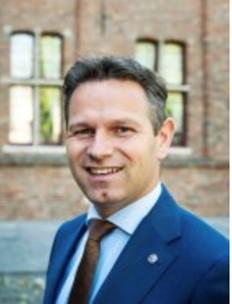Presentation of the Region
South Netherlands is a highly innovative region. Last decades the region turned into a knowledge-intensive high-tech region. Making business out of mission-driven innovation is our aim. The use of strong interregional connections in relation to our Smart Specialisations is a “modus operandi” since the early 90s.
South Netherlands’ clusters concentrate on High Tech Systems, Chemistry, and LifeTec. Our vision and strategy are to strengthen and interconnect these top clusters and support the development of new clusters. It is a unique triple helix cooperation in which high-tech research and business, facilitated by public authorities, work closely together in an open innovation ecosystem.
This is illustrated by South Netherlands’ strong innovation ecosystems in Limburg (Brightlands Campuses), Zeeland (Campus Zeeland), and Brabant (Brainport Industries campus) around the national and international top clusters (specified in the RIS3 as high-tech systems and materials, agrifood, and chemistry, life science and health, biobased, logistics, and maintenance). International market leaders operate within this context with start-ups and scale-ups, campuses, triple-helix organisations, and regional development companies to form a strong innovation system.
Parties in South Netherlands work with an open mind, proactively seeking connections with partners outside the region, both at home and abroad. See: https://www.nl-prov.eu/regional-offices/south-netherlands/?lang=en
RIS3 Priorities
The mission of the RIS3 is to stimulate innovation, based on South-Netherlands’ specific strength, which has an economic impact in the South and leads to a societal impact on a regional and international scale. Five major transitions, both global and specific to South Netherlands and in line with the themes of the Green Deal, are at the heart of this mission: the energy, raw materials, climate, agriculture and food, and health transitions.
Within the innovation chain, the RIS3 focuses mainly on developing products and services that providers can both implement in South Netherlands to benefit the five transitions and scale up for a national and international market. South Netherlands will make it more attractive for SMEs to participate in European programmes.
Based on the distinctive strength of South Netherlands, the vision of the RIS is to respond to the international character of the transitions and capitalise on the related international market opportunities. South Netherlands does this by coming up with new solutions for the major challenges facing Europe and the world, and by demonstrating in the South that these new solutions work, for example in trial productions, pilots, first roll-outs, and living labs. We also look for ways to connect these South Netherlands solutions interregional with complementary solutions in European value chains. This is how we ensure societal impact and make progress within the transitions, both in South Netherlands and internationally.











